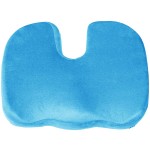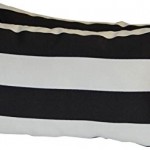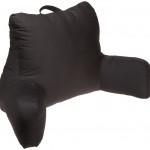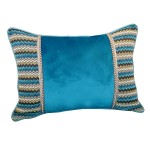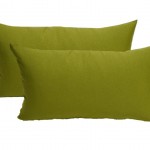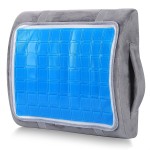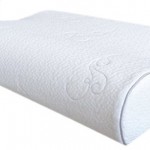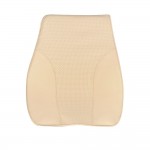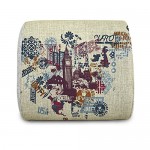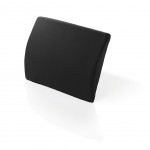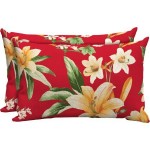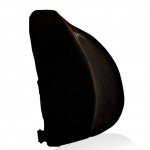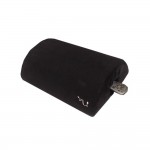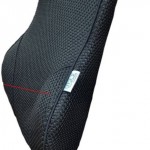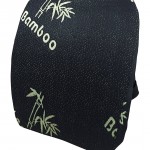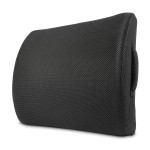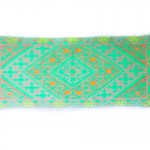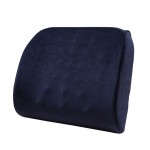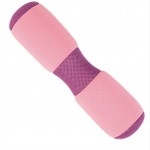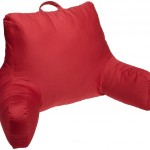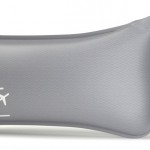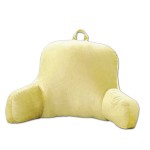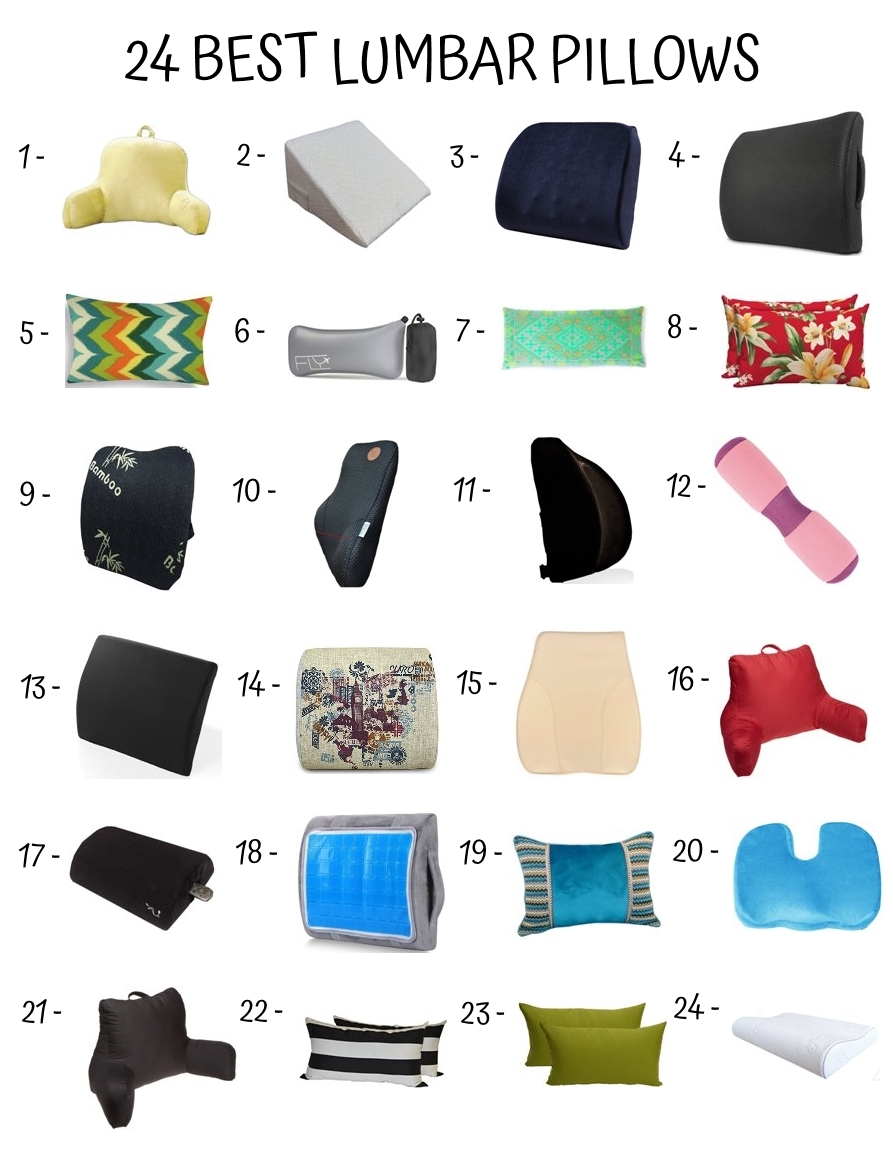
There are so many lumbar pillows available on the market today that it is hard to figure out which one to choose. Many of them seem to offer the same support, but in a different style. So, how do you know which one will work the best for you?
The following list is the top 24 best reviewed lumbar pillows that we have found and what they have to offer.
1) Sweet Home Collection Bed Rest pillow Lounger | 2) Comfort Rest Foam Orthopedic Wedge 12″ Pillow | 3) Qutool Memory Foam Back Cushion Back Orthopedic Support Pillow | 4) Elephix Lumbar Pillow Lower Back Support Cushion | 5) Domusworks Chevron Lumbar Pillow | 6) Lumbar Support Pillow – Self-Inflating Cushion | 7) Tribal Lumbar Throw Pillow | 8) Outdoor Patio Lumbar Toss Pillow, Set of Two | 9) Lumbar Lower Back Pain Pillow-Bamboo Lumbar Support Pillow | 10) Lumbar Pillows,Suninbox Car Lumbar Pillows | 11) Lumbar Support Pillow For Lower Back Support | 12) Yoga Lumbar Body Shaping Pelvic Correction Magic Pillow | 13) TEMPUR-Lumbarcushion | 14) Ilyzone Memory Foam Retro Cotton Linen Fabric Pillow | 15) Tofern Lumbar and Back Support Cushion | 16) Brentwood Brushed Twill Bedrest | 17) Smushion Deluxe Lower Back Support Memory Foam Pillow | 18) Cool Gel Lumbar Support Pillow | 19) Monkeysell Blue striped Velvet Square Pillow | 20) Memory Foam Coccyx Lumbar Pain Relief Pillow | 21) Brentwood Originals Brushed Twill Bedrest | 22) Indoor / Outdoor Decorative Lumbar / Rectangle Pillows | 23) Decorative Lumbar / Rectangle Pillows | 24) Premium Soft Bed Pillow |
With any of our best picks for lumbar support pillows and cushions above, you can rest assured that you will have the necessary support for your lower back. However, there is a lot of ambiguity regarding lumbar cushions and how their ergonomic design helps you. This section addresses the most common queries audiences have:
Do I Need a Lumbar Support Pillow?
If you suffer from poor posture with an accentuated curve and chronic back pain, a lumbar cushion is definitely recommended, especially if your routine involves extensive periods of sitting. Moreover, even if you don’t have significant back problems but have a sedentary lifestyle, these cushions can help you in the long term by promoting good posture and negating any detrimental effects you might see in the future.
Prolonged sitting causes the onset of “creep”, a build-up of stress due to constantly contracted muscles and ligaments due to sitting. By providing support to the muscles and helping maintain proper posture, a lumbar cushion lowers the stress build-up.
Do I Need to See a Doctor to Get a Cushion?
These cushions can easily be purchased off the shelf without a prescription. If you have chronic pain or specific back problems such as Sciatica or herniated discs you should consult an orthopedist or chiropractor for a recommendation. This would ensure that you don’t get the wrong cushion which could further exacerbate your condition.
How Does the Cushion Work?
The lumbar cushion has a curved shape to follow the contours of the spine. This ensures that your back is always in contact with the cushion. Without support, the muscles in your lower back remain taut to keep you supported, leading to the tell-tale build-up of lower back pain.
Using the cushion is remarkably easy as you simply fasten it to the back of your chair. You will need to adjust it slightly to find the optimal position which works best for the contours of your spine.
Which Type of Cushion is Optimal for Me?
The type of cushion best suited to a person’s needs is dependent on a number of factors:
- Size and weight: choose a cushion that suits the dimensions of your back. Shorter people would require thicker cushions in general while heavier people should go with firmer designs that are less likely to compress over time.
- Type of chair: chairs with padding or built in lumbar support usually require thinner lumbar support cushions that provide support without forcing you too far forward. Moreover, make sure you make a note of the dimensions of the cushion and compare it with your chair before ordering to make sure it will fit.
- People with a deeper lumbar curve will naturally require a thicker cushion.
- If you will be sharing the cushion, it would be best to get a memory foam one. These adapt well to the contours of each user’s back and provide better support.
Is a Lumbar Support Cushion the Same as a Back Brace?
No. A back brace is designed to be worn around the waist and stabilizes the muscles by providing necessary support. They are generally recommended for more severe conditions such as herniated discs, as a part of recovering from surgery or for people with intense physical jobs that load their back muscles.
A lumbar support cushions is designed to be attached to the seat and provide support to alleviate muscle stress and promote good posture during sitting only.
Will it Cause a Weakening of Muscles?
This is a common misconception with back supports in general. A back support cushion just provides support and promotes good posture, ridding you of the bad sitting habits. It does not weaken muscles but supports over-exerted ones while helping you strengthen weaker ones by making you sit up straighter.
All in all, a lumbar cushion does an excellent job of promoting good posture and helping relieve the stresses of prolonged sitting. That said, it is just as important to instil good sitting habits if you suffer from lower back pain.
Take regular breaks and stretch for short periods to loosen the muscles and ligaments. Moreover, it is vitally important to adjust your chair and desk in a neutral position that provides support and keeps you upright. By inculcating these practices along with recommended lumbar support cushions, back pain will be a thing of the past.
